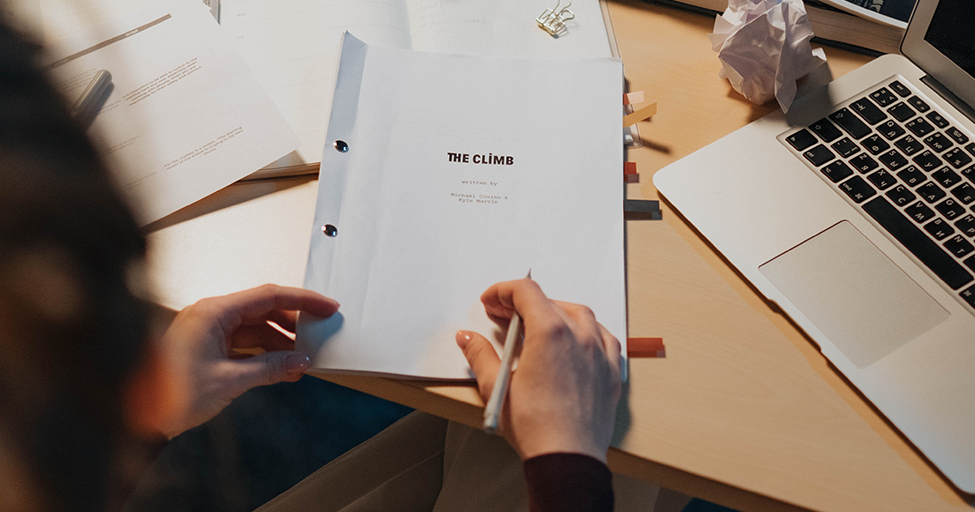
How to Hire a Book Editor
June 16, 2022
What Is Author Central on Amazon?
July 27, 2022How to Find a Good Editor for Your Book
It’s one of the most exciting moments in an author’s life. You’ve completed your book and you’re ready to publish! Not many writers make it this far, so you should be proud. Before your book makes it out into the world, however, it probably needs to go through a full editing process. Never fear, though—editors aren’t scary, judgmental people wielding giant red pens. (Most of the time, that is!) A good book editor wants to make your book better and ensure its success. Discovering how to find a good editor for your book is an important process. Read on to learn how to find the right editor for you.
What to consider before hiring a book editor
Before you hire a book editor, there are many things to consider. First, you need to understand what different types of editors do and the nuances of a book editor role. For example, a developmental editor is very different from a copyeditor.
It’s also important to understand what your manuscript really needs, because every book is different. Additionally, you need to consider the cost of an editor.
How can the form and content of your writing influence what you need from an editor?
Let’s start with what kind of book you’ve written. Is it an educational textbook? A research monograph? A fictional work? Perhaps a torrid romance novel, or even a children’s book?
It is likely that a professional book editor works on all of these different types of books. However, some editors specialize in different types of books or genres.
If you wrote a textbook or nonfiction work, you’ll probably benefit most from a full developmental edit. A developmental editor reads your book top to bottom, commenting on structural issues, missing pieces, areas to flesh out, appropriateness for the audience, and overall tone and flow. The developmental edit can be followed by line edit or copyedit layers.
If you wrote a work of fiction or a less complex book and you feel confident about the content, the most economical path may be going straight to a copyedit. A copyeditor focuses on grammatical, spelling, and punctuation issues, making sure your book is clean, error free, and consistent.
How can you determine what you need from a book editor before you hire one?
Before you hire a book editor, it’s crucial to know what sort of service you really need. Is your manuscript still in rough shape? Do you need advice on what direction to ultimately take it? If so, a professional book editor offering a developmental editing service is probably what you need.
If you’re just looking for general feedback, you may want to bring in a beta reader. While a beta reader won’t give your book a full edit, they do offer feedback on the book overall. You can use their notes to go back and rework the plot as needed. Many beta readers even work for free or in exchange for some small gift, like a free copy of your finished book.
Once the book nears publication, it’s time to get into the nitty-gritty of fine-tuning your work. This is when you many need a line editor, copyeditor, or proofreader. These types of editors are there to help you clean up and finalize your masterpiece!
How much can you expect to pay a book editor?
Different editors charge different rates, and may have entirely different pricing models. Editors may charge
- by the hour,
- by the page, or
- by the word.
Regardless, you should confirm their rate up front. If the editor charges hourly, you may want to ask about imposing a cap on the total number of hours you want them to spend on your project.
If you’ve signed with a publishing house, the cost of an editor may already be covered in your contract. Be sure to double-check!
Qualifications to look for in an experienced book editor
How do you know if an editor has what it takes to do your book justice? There are many different qualifications you can look for in an experienced book editor. Be sure to focus on the requirements that are the most important to you!
What track record should an experienced book editor have?
An experienced editor should have from five to ten years of experience (or more) in publishing. He or she should be able to show you a list of titles they’ve worked on that are actually in print. Perhaps they even work for a reputable publishing house on a regular basis.
Ideally, he or she should also give you a list of references upon request. Referrals are worth their weight in gold. If you’re able to ask other authors who they’ve worked with in the past, you’re likely to get some very strong recommendations (as well as information on who to avoid).
What soft skills does a good book editor need?
A good book editor is not just a spelling and grammar whiz. Editors have a lot of important soft skills as well.
Most importantly, a good editor is collaborative. He or she should be willing to work with you to produce the best possible outcome—not just lecture you about what you’ve done wrong.
An editor’s tact and tone are very important. Any questions to you should be phrased clearly and politely. Comments should feel encouraging, not belittling. Good editors are also good listeners and critical thinkers. They tend to be detail oriented and impeccably organized.
It doesn’t hurt to love reading, either! A passion for literature and the English language are hallmarks of almost every great editor.
What are the best degrees to get to become a book editor?
Editors come from many different backgrounds. You may be surprised at how many book editors majored in medicine or science, law or architecture! But generally speaking, editors tend to have degrees in the following:
- English
- Communications
- Journalism
Most of these subjects are writing heavy, so the editors are well trained in writing themselves and are used to evaluating others’ work.
Some universities even often graduate degrees specifically in editing or publishing. But don’t discount an editor if they don’t have a higher degree! Great editors learn best on the job, not in the classroom.
Questions to ask a potential book editor
If you are hiring a book editor on your own, there are many questions you may want to ask your candidates. Here are some important things to focus on:
- A schedule and timeline in which the editor can complete your book
- The editor’s overall experience
- References or information about the editor’s previous work
What questions should you ask about the timeline before you hire a book editor?
One of the most important things to establish up front is your timeline for editing. If your manuscript is complete and ready to roll, the editor can assess the length and complexity of the project and give you a pretty good estimate, factoring in other projects they may be working on at the same time. If you need to deliver chapters in batches, it’s good to look ahead several months to see what the editor’s availability looks like.
Ask the editor how many pages they can get through each day or each week. Some tasks, like a developmental edit, may take longer chunks of time than copyediting.
If you are working with a publishing house, a person with a managing editor job will coordinate the editing for you. You’ll be in close contact with the staff of the agency regarding timelines and delivery of your edited files.
What questions should you ask a potential editor about their style and skills?
Though an editor’s style may not necessarily be more important than their ability to catch typos, it is an important factor when choosing the right editor for you. You need to find the right balance between style and substance. Here are some questions you can ask a book editor:
- What editing training do you have?
- What computer programs do you work in?
- Do you prefer to make changes outright, or will you query me first?
- Will you provide a style sheet?
- Do you have regular “office hours” during which I can contact you?
- Would you prefer contact over the phone or email?
The editor should be willing to send you a sample edit as well, perhaps on the first chapter or two of your book. This should give you a sense of how they work and what types of comments you should expect to see—and if the editor is doing a thorough-enough job.
What questions should you ask a potential book editor about their previous work?
You definitely want to ask a potential editor about his or her previous work. It helps to view samples of their editing and to check if the editor has worked on any books you admire.
Ask if the freelance editor prefers any genres or subject matters over others. Perhaps they have a degree in the same field that your book discusses. Any knowledge they have about your topic is certainly an asset.
If the editor is an expert in a particular writing style, it may help to know that too. Chicago style is a mainstay for most editors, but if your book contains medical material, you may want an editor with experience in AMA style. If you want a more journalistic tone, you’ll need an editor with experience in AP style.
Where to hire the best editor for your book
If you’re looking to hire a quality editor, many websites and agencies, such as Elite Authors, can help you check that out. Do your research carefully; you need to fully trust that you’re putting your book in good hands!
How can Elite Authors help you with your editing needs?
Elite Authors offers a wide range of editing services, from developmental editing to proofreading. We’ll do a full assessment of your book and recommend a package of editing services that best fits your needs and your budget.
If you’re an indie author looking to self-publish your book, Elite Authors can assist you every step of the way, from a manuscript critique to the design and layout of your book.
What resources are available to help authors find editors?
A quick web search turns up countless editing sites, but that doesn’t mean all of them are worth your time. Start with a reputable site, like the Editorial Freelancers Association. Members can post their résumés here so you can search for an editor who matches your particular requirements.
Local universities or libraries can also be good resources to help open the lines of communication with a professional editor. You can also post your editing job on gig sites like Upwork.
In addition, editors are sometimes listed on a book’s acknowledgments page or on the copyright page—or even on its Amazon sales page. Check out books by your favorite writers to see if they name-drop their editors. Perhaps he or she has a website that you can look up.
How can you meet qualified editors for your book?
One of the best ways to meet a qualified editor for your book is to use a reputable editing agency. All editors working for the agency are fully tested and vetted, so no matter who you’re matched with, you’ll get great quality. Editing agencies are also responsible for checking the editor’s work, so you’ll get a layer of quality control built into the process as well.
And if you have a literary agent, perhaps he or she can recommend someone who is a good match.
Find a great editor today with Elite Authors.
Are you ready to begin editing your book while working with a group of professional writers and editors? Elite Authors offers a full range of editing services to meet your needs and budget.
Getting a quote is free and easy. Reach out today!



